In healthcare, one constant remains change. Healthcare organizations constantly adjust to new regulations, shifting patient needs, and emerging technologies. These changes bring a tidal wave of new data that must be efficiently organized, processed, and stored. Organizations are susceptible to dangerous errors that can compromise patient care without effective healthcare data management.
Healthcare data management software solves this problem, giving organizations greater control over their data to improve operations and patient outcomes. This guide will explore the value of healthcare data management software and how it can allow healthcare organizations to overcome their data challenges.
One effective healthcare data management tool is Azulity’s healthcare master data management services. This solution helps healthcare organizations create a comprehensive, easily accessible data repository, enabling organizations to streamline operations and enhance patient care by improving healthcare data management.
Importance of Data Management in Healthcare


Health data management, also known as Health information management, is the systematic organization of health data in digital form. This can be anything from Electronic Medical Records generated from doctor visits to Electronic Health Records to handwritten medical notes scanned into a digital repository.
Health data management involves organizing medical data, integrating it, and enabling its analysis to improve patient care while protecting the privacy and security of the data.
According to a Deloitte Survey
Most healthcare organizations collect EMR abstracts, claims data, and data about enrollment and medical programs. Only leading organizations additionally use electronic EMR feeds and disease management program data. Only some organizations use non-health data sources to augment formal medical data, such as patient lifestyle information, remote monitoring and wearable devices, and survey data about patient experience.
The Benefits of Healthcare Data Management for Organizations, Staff, and Patients
Health Data Management can have significant benefits for healthcare organizations, medical staff and patients:
- Create a comprehensive view of patients, households, and patient groups—composite profiles that provide status and enable predictions.
- Improve patient engagement by targeting patients with reminders and care suggestions that are relevant to them based on predictive modeling.
- Improve health outcomes by tracking trends in certain areas or among specific populations, predicting new trends, and suggesting proactive measures to counter rising health issues.
- Business decision-making helps healthcare providers make better data-driven decisions, such as which types of medical professionals to recruit, what equipment to invest in, or which types of patients to focus on in marketing efforts.
- Analyze physician activity—analyze data on medical practitioners, such as success rates, time invested in different treatments and medical decisions, and physicians’ alignment with the healthcare organization’s goals.
Healthcare Data Management Best Practices


1. Embrace Azulity for Data Management Solutions
Azulity specializes in healthcare master data management, bringing proven expertise in implementing healthcare data solutions and credentialing across the US. Our comprehensive platform ensures consistent patient, provider, location, and claims data synchronization across all systems and departments.
Key features include healthcare MDM, provider MDM, reference data management, credentialing, and provider enrollment. We serve healthcare technology leaders – from CIOs and CDOs to VPs of data platforms and credentialing – helping them eliminate the costly problems of fragmented data systems. Book a call to learn more about our healthcare master data management services today!
2. Use Technology Effectively
Effective use of technology is essential to proper data management. With tools such as electronic health records, healthcare customer relationship management, and revenue cycle management, the health sector can organize and manage the influx and distribution of information. More than 90% of U.S. hospitals are implementing EHRs since they’re often the most accessible. This widespread adoption fosters the creation of more unified data management systems.
However, health providers still generate at least 50% of patient records outside EHRs. Facilities collect patient information from various sources, including paper forms, data imaging, transcriptions, nurse notes, and remote monitoring systems. To unlock this flood of information’s total value and potential, they must first transfer it into a widely used system like an EHR. Thus, providers must collect and sort through data and organize it within this widely used system to apply the findings.
3. Normalize Data
Among the challenges for the broad adoption of EHR is ensuring consistent electronic data that providers can share between systems. Because data sets come from various machines, health organizations, and locations across the country, different clinical data domains may represent them differently. As a result, physicians are more likely to misinterpret medical data and make errors in patient care. Therefore, standards for capturing, defining, and transmitting data are vital to interoperability.
Over the years, dedicated standards development organizations, government agencies, and other specialists have developed various data standards for health care. While this is a step in the right direction, it presents competing and redundant measures that don’t promote consistent or comprehensive data. Health information management teams continue to work to reconcile these standards. In the meantime, hospitals can focus on achieving standardized data within their facilities by implementing a single shared data management system.
4. Enable smooth Information Exchange
As technical data stewards and health information management teams continue to standardize data input, health information exchange professionals work to streamline information transfer. Although HIEs operate in an app-centric format, they’re beginning to transition to a more patient-centric view. This shift will facilitate the smooth exchange of clinical information to stakeholders, health providers, and patients.
For instance, more than 90% of patient-generated data comes from medical imaging. However, these images are challenging to share electronically because they’re often spread across different department systems. HIEs, therefore, must connect imaging content across the care continuum. One way to accomplish this is by implementing vendor-neutral archives, which provide interoperability among departments and allow harmonious data and imaging exchange.
5. Form a Comprehensive View
By creating more standardized data and facilitating its exchange, medical institutions improve the information’s reliability, thus forming a comprehensive 360-degree view of providers and patients. This complete picture helps organizations understand where providers practice and what patients they see. Therefore, it’s essential to link information from various profiles — including name, address, and Medicare and Medicaid number — to the same provider. This practice ensures that no one overlooks pieces of information and that data is consistent between profiles.
Still, many health plans find that more than half the patient’s contact information is outdated. Since the same patient may have inaccurate or old details stored in their name at numerous healthcare institutions, a consolidated format linking back to them is crucial. For example, if a physician overlooks a vital piece of information, like an allergy, this could result in medical malpractice and adverse reactions in the patient. Thus, it’s best to prompt patients to provide updated data whenever possible.
6. Protect Sensitive Data
Since systems store this medical information electronically, it’s susceptible to security breaches. Data breaches compromise sensitive data and can be very costly for providers. In 2011 and 2012, 94% of healthcare organizations suffered at least one data breach, and 45% experienced more than five breaches in the same span. Therefore, hospitals and medical facilities must be more diligent in protecting electronic data and management systems.
By following regulations such as those established by the Health Insurance Portability and Accountability Act, healthcare providers can safeguard the security and privacy of protected health information. Appropriate data management practices include setting policies to ensure this protection, such as a mobile device policy, which governs what data users can store on apps and mobile gadgets. Organizations should also secure wireless networks, encrypt portable devices, and educate staff members on what constitutes a HIPAA violation.
Related Reading
- Data Quality Management in Healthcare
- How to Secure Patient Data
- Master Data Management Solutions
- Patient Data Management System
12 Best Healthcare Data Management Software
1. Azulity: Mastering Healthcare Data Management
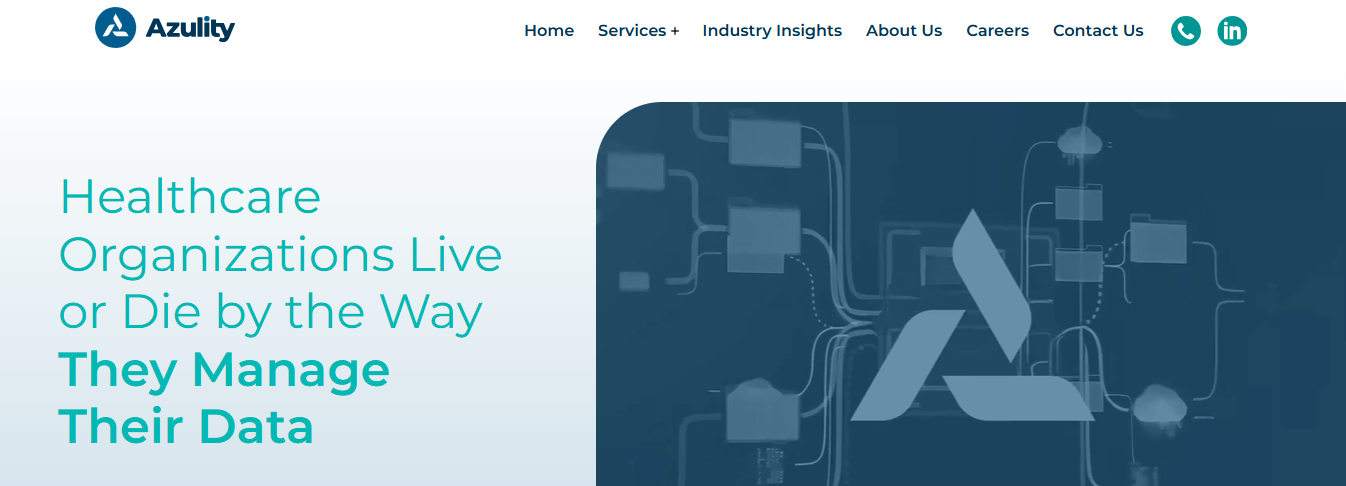

Azulity specializes in healthcare master data management. The company leads the implementation of healthcare data solutions and credentialing across the US. Their platform synchronizes patient, provider, location, and claims data across all systems and departments. Key features include healthcare MDM, provider MDM, reference data management, credentialing, and provider enrollment. Azulity serves healthcare technology leaders — from CIOs and CDOs to VPs of data platforms and credentialing — helping them eliminate the costly problems of fragmented data systems.
Pricing
Book a call to learn more about Azulity’s services today!
2. Cerner Millennium: A Comprehensive Suite of Healthcare Data Management Solutions
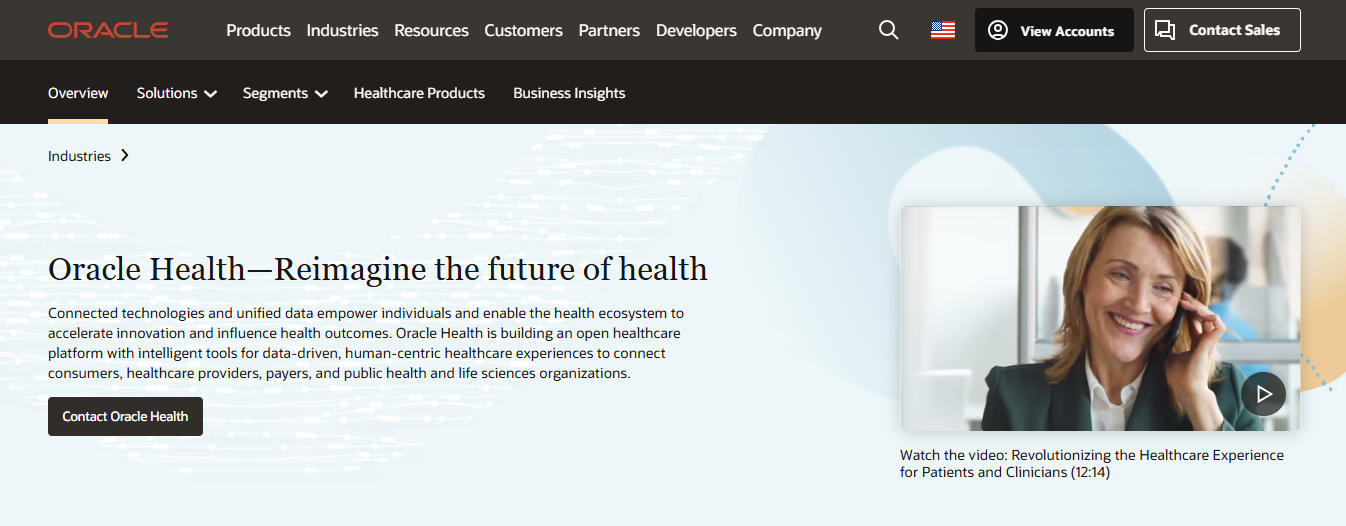

Cerner offers a comprehensive healthcare data management solutions suite, including its flagship platform, Cerner Millennium. This integrated system enables healthcare organizations to efficiently manage patient records, clinical workflows, and administrative tasks. With features like real-time data access and analytics, Cerner Millennium helps improve patient outcomes and operational efficiency.
Pricing
Licensing fees for Cerner Millennium typically start at $1 million to $5 million for smaller healthcare organizations, with larger institutions potentially paying significantly more. Maintenance and support costs can add 15% to 25% of the initial licensing fee annually.
3. MEDITECH Expanse: Optimizing Data Management in Healthcare
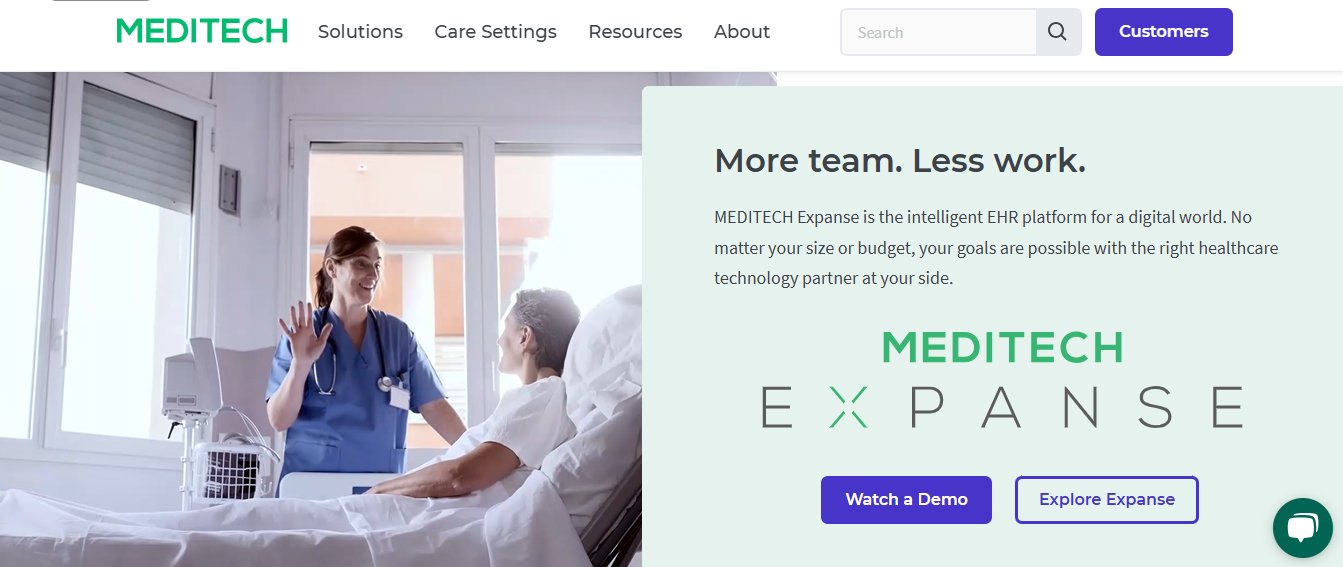

MEDITECH Expanse is a cloud-based EHR solution streamlines healthcare data management and enhances clinical workflows. Its intuitive interface and customizable modules enable healthcare organizations to optimize patient care delivery while ensuring data security and compliance.
Pricing
Subscription fees for MEDITECH Expanse may start at approximately $50,000 to $100,000 per year for smaller healthcare organizations, with larger institutions potentially paying several hundred thousand dollars or more annually. Implementation costs can vary but may range from $100,000 to $500,000.
4. Epic Systems: Smooth Integration of Patient Information


Epic Systems’ Electronic Health Record (EHR) software is widely used by healthcare providers worldwide. Its robust data management capabilities allow for smooth integration of patient information across various healthcare settings. Epic’s EHR facilitates communication between healthcare professionals and enables personalized patient care through advanced clinical decision-support tools.
Pricing
Epic Systems’ pricing can start at around $1 million to $2 million for smaller healthcare organizations, with larger institutions potentially paying tens of millions or more. Maintenance and support costs typically range from 20% to 25% of the initial licensing fee annually.
5. Allscripts Sunrise: Informed Decision-Making Through Integrated Data


Allscripts Sunrise is a comprehensive healthcare data management platform that integrates clinical, financial, and operational data to support informed decision-making. With features like predictive analytics and population health management tools, Allscripts Sunrise allows healthcare organizations to improve patient outcomes and reduce costs.
Pricing
Pricing for Allscripts Sunrise can start at around $500,000 to $1 million for smaller healthcare organizations, with larger institutions potentially paying several million dollars or more. Maintenance and support costs typically range from 15% to 20% of the initial licensing fee annually.
6. InterSystems HealthShare: Facilitating Data Sharing and Analytics
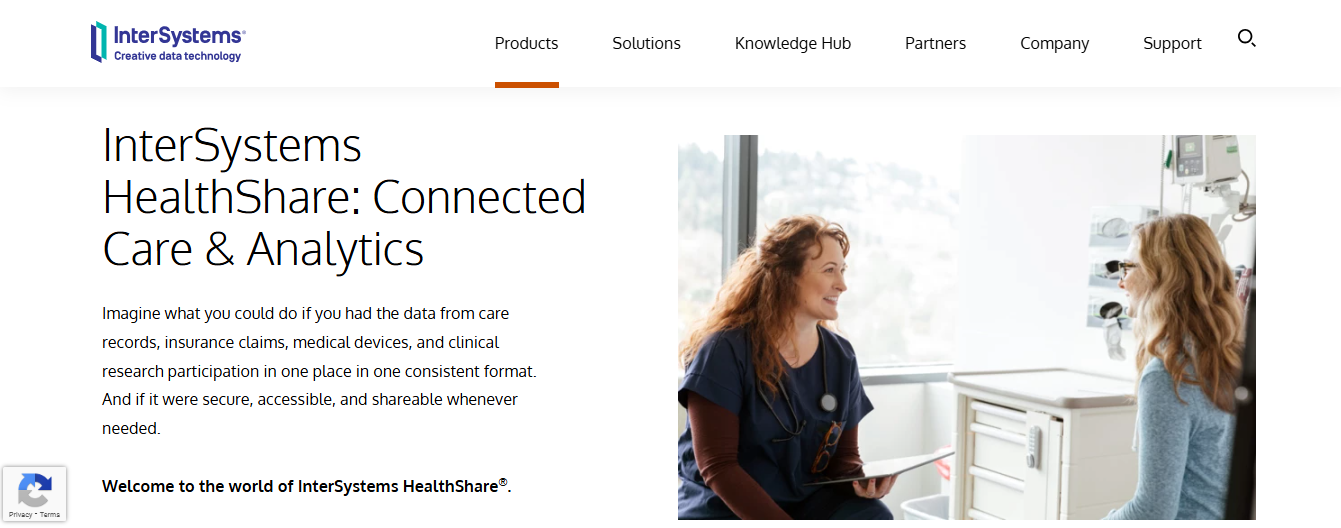

InterSystems HealthShare is a comprehensive health informatics platform that facilitates interoperability, data sharing, and analytics across healthcare systems. It enables healthcare organizations to aggregate, normalize, and exchange data from disparate sources, including electronic health records (EHRs), medical devices, and wearables. HealthShare supports care coordination, population health management, and value-based care initiatives.
Pricing
Pricing for InterSystems HealthShare can start at approximately $200,000 to $500,000 for smaller healthcare organizations, with larger institutions potentially paying several million dollars or more depending on the scope of implementation and additional services required.
7. eClinicalWorks: Integrated Healthcare IT Solutions
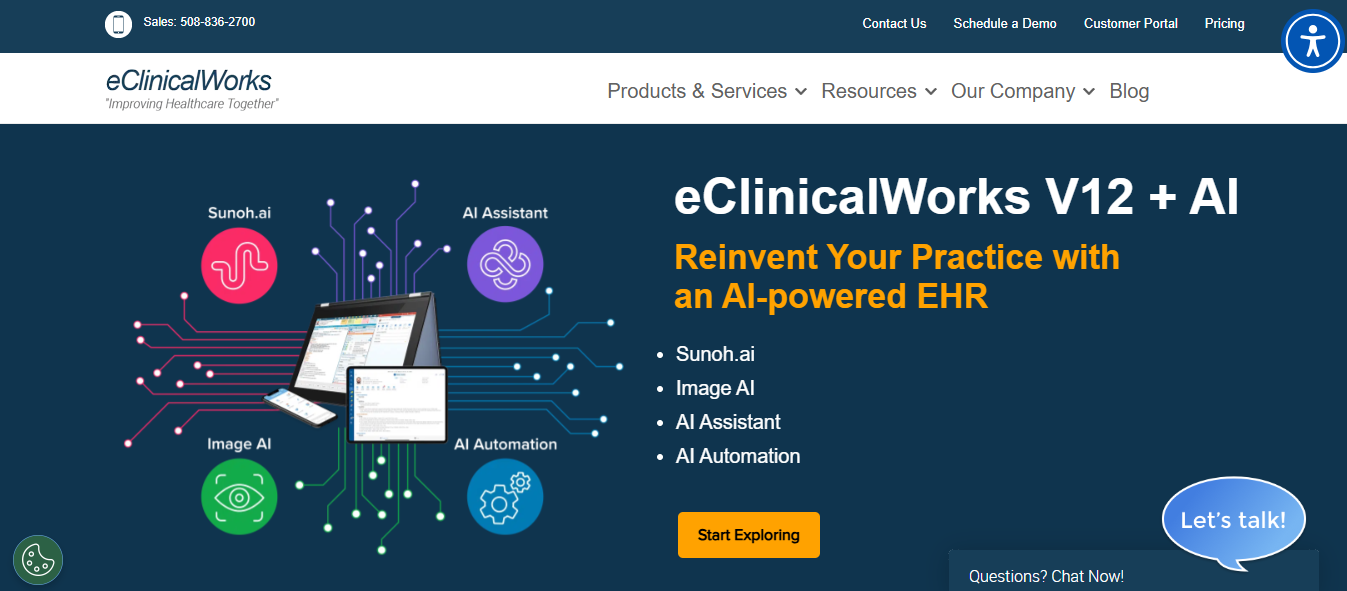

eClinicalWorks offers integrated healthcare IT solutions, including EHR, practice management, and revenue cycle management software. Its healthcare data management capabilities enable providers to streamline documentation, automate workflows, and improve patient engagement through secure online portals.
Pricing
For smaller healthcare organizations, subscription fees for eClinicalWorks may start at approximately $50 to $100 per provider per month, with larger institutions potentially negotiating lower per-provider rates. Additional costs for implementation, training, and support services may apply.
8. McKesson Health Solutions: Data-Driven Insights and Workflows
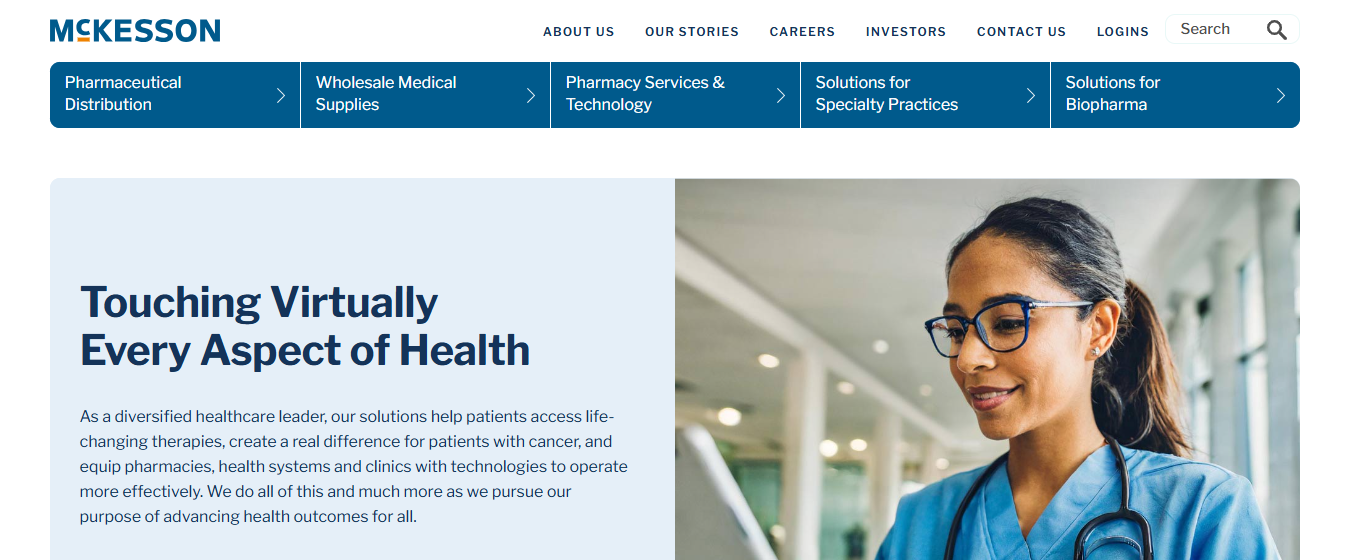

McKesson Health Solutions offers a range of healthcare data management solutions, including population health management platforms, revenue cycle management software, and clinical decision support tools. Their solutions help healthcare organizations improve care delivery, optimize financial performance, and enhance patient outcomes through data-driven insights and workflows.
Pricing
Pricing for McKesson Health Solutions can start at around $100,000 to $500,000 for smaller healthcare organizations, with larger institutions potentially paying several million dollars or more depending on the modules and services selected.
9. NextGen Healthcare: Enhancing Clinical Efficiency and Patient Care
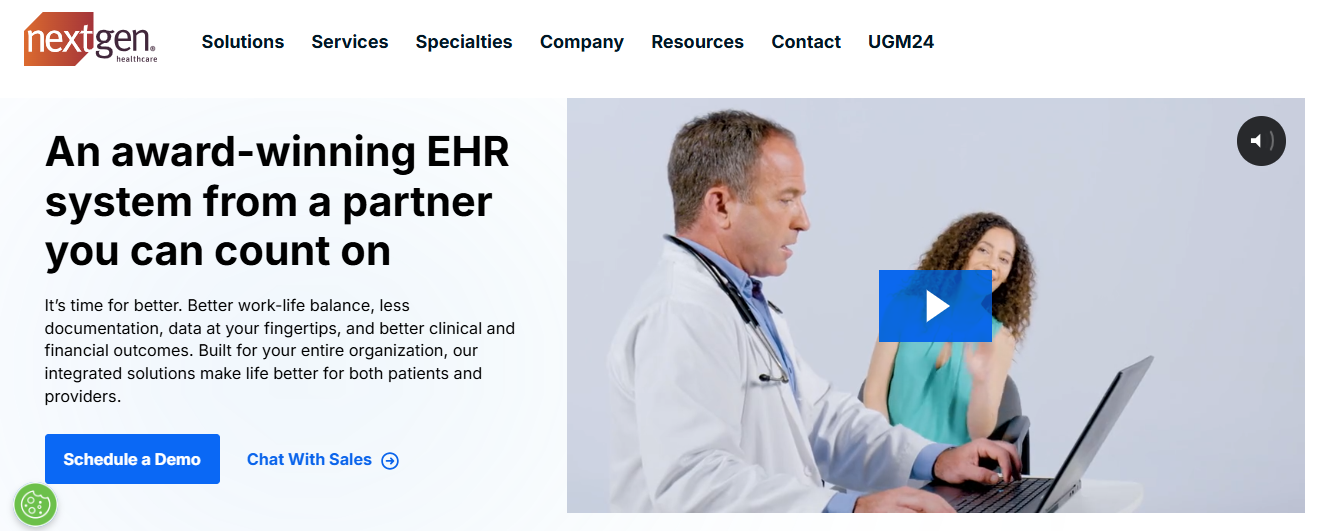

NextGen Healthcare’s EHR and practice management solutions provide organizations with robust healthcare data management tools to enhance clinical efficiency and patient care. With features like interoperability with third-party systems and built-in reporting capabilities, NextGen Healthcare helps healthcare providers achieve better outcomes and improve operational performance.
Pricing
Licensing fees for NextGen Healthcare start at around $500,000 to $1 million for smaller healthcare organizations, with larger institutions potentially paying several million dollars or more. Maintenance and support costs typically range from 15% to 20% of the initial licensing fee annually.
10. Medidata Solutions: Optimizing Healthcare Data Management in Clinical Trials
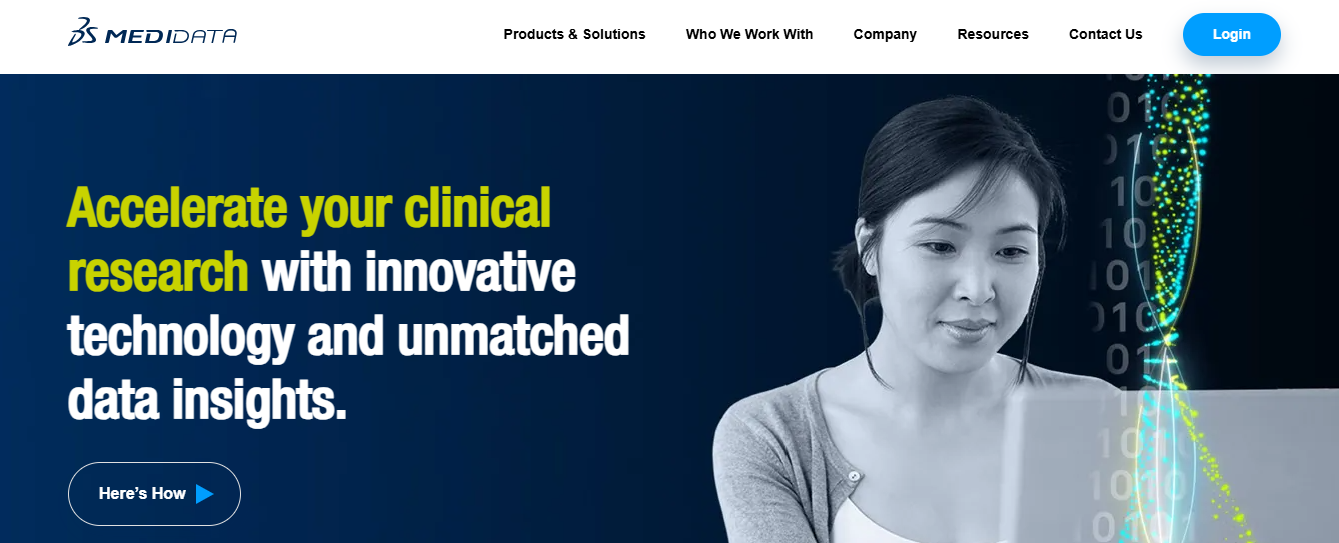

Medidata Solutions specializes in cloud-based software solutions for clinical research and development. Their platform offers healthcare data management tools tailored for clinical trials, including electronic data capture (EDC), clinical trial management system (CTMS), and risk-based monitoring (RBM) capabilities. Medidata Solutions helps streamline data collection, analysis, and reporting for clinical research studies.
Pricing
Subscription fees for Medidata Solutions may start at around $50,000 to $100,000 per year for smaller healthcare organizations, with larger institutions potentially paying several hundred thousand dollars or more annually, depending on the modules and services selected.
11. SAP Healthcare Solutions: Real-Time Insights and Predictive Analytics
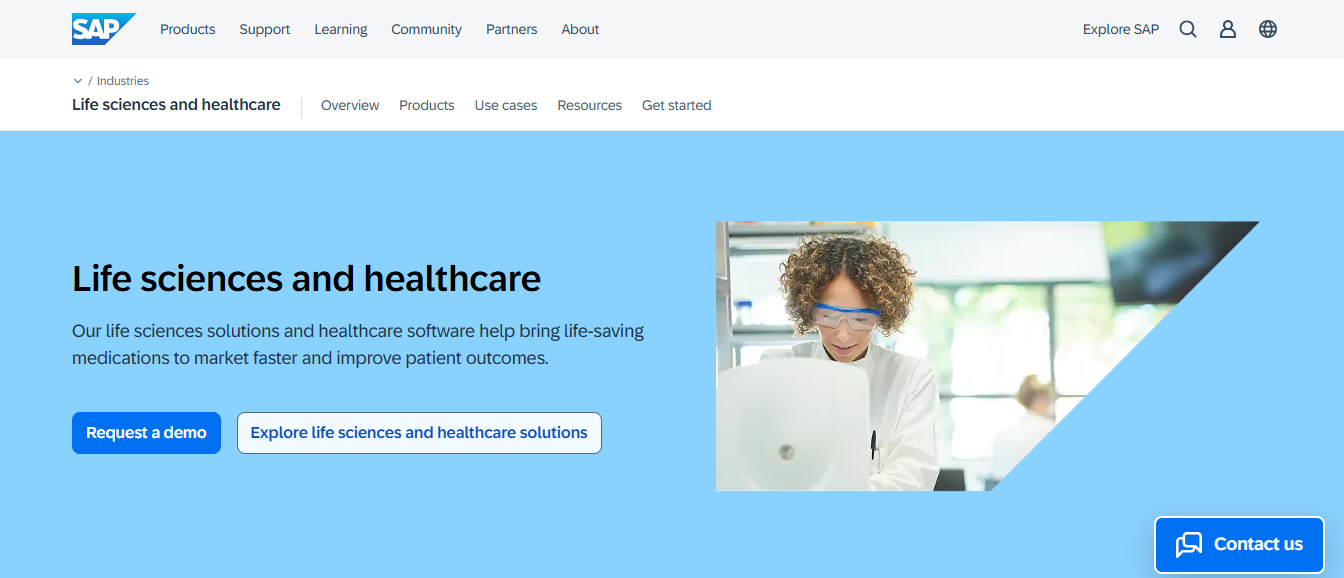

SAP provides healthcare solutions to various healthcare data management needs, including electronic medical records (EMR), health information exchange (HIE), and healthcare analytics. SAP’s healthcare solutions enable organizations to streamline operations, improve patient outcomes, and comply with regulatory requirements by leveraging real-time data insights and predictive analytics.
Pricing
Subscription fees for SAP Healthcare Solutions may start at approximately $50,000 to $100,000 per year for smaller healthcare organizations, with larger institutions potentially paying several hundred thousand dollars or more annually, depending on the modules and services selected.
12. Health Catalyst: Data Warehousing and Analytics Platform for Healthcare
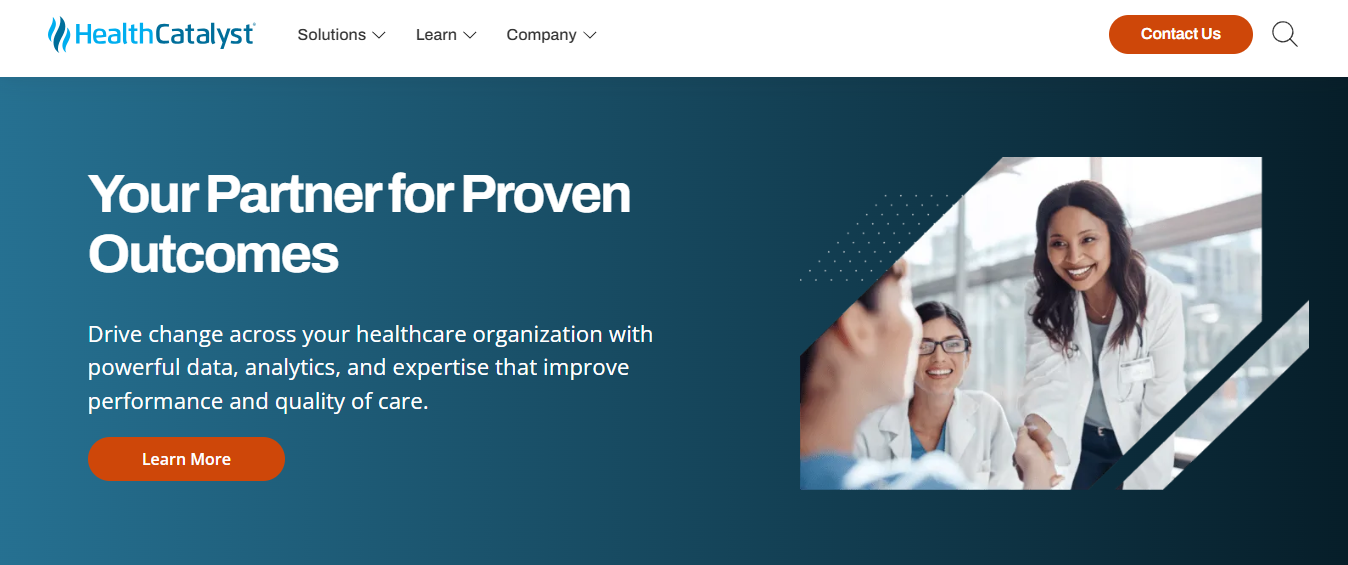

Health Catalyst provides a data warehousing and analytics platform specifically designed for healthcare organizations. It integrates data from various sources, including EHRs, financial systems, and operational databases, to enable comprehensive analytics and decision support. Through data-driven insights, Health Catalyst helps healthcare organizations improve patient outcomes, reduce costs, and drive operational efficiency.
Pricing
Licensing fees for Health Catalyst can start at around $500,000 to $1 million for smaller healthcare organizations, with larger institutions potentially paying several million dollars or more depending on the modules and services selected. Maintenance and support costs typically range from 15% to 20% of the initial licensing fee annually.
Related Reading
- Healthcare Provider Data Management
- MDM Implementation
- Reference Data Management
- Healthcare Data Integration
- Healthcare IT Consultants
Use Cases of Healthcare Data Management Software


Enhancing Patient Care with Healthcare Data Management Software
Healthcare data management software is critical in improving patient care and decision-making. Epic Systems is a leading healthcare data management software platform in hospitals and clinics worldwide. It provides Electronic Health Records (EHR), which centralize patient data, including medical history, lab results, medications, etc. This software enables healthcare professionals to quickly access critical information during patient visits, ensuring more accurate diagnoses and treatment plans.
At Cleveland Clinic, Epic’s data management software helps doctors make better clinical decisions. By accessing the comprehensive patient data stored in Epic, they can provide personalized treatments based on a patient’s past medical records, improving overall outcomes.
Improving Operations with Health Data Management Software
Healthcare data management software can also enhance operational efficiency in healthcare organizations. Cerner’s healthcare data management software helps hospitals streamline administrative and clinical operations. With integrated features like patient scheduling, billing, and clinical documentation, it reduces the burden on staff and improves workflow efficiency. UCLA Health uses Cerner to manage over 100,000 patient visits annually. The system integrates scheduling, clinical data, and medical records, allowing staff to work more efficiently and focus on patient care rather than administrative tasks. This results in reduced wait times and increased patient satisfaction.
Data Integration for Better Care
Healthcare data management software can improve the quality of patient care by enabling better data integration and interoperability. Allscripts’ software integrates patient data from various sources, allowing smooth information exchange between hospitals, clinics, and pharmacies. This ensures a holistic view of a patient’s health, no matter where they go for care. Intermountain Healthcare, a non-profit health system in the U.S., uses Allscripts to integrate patient data across different healthcare settings. This connectivity ensures that patients receive consistent and coordinated care, regardless of where they receive treatment.
Improving Research and Clinical Trials
Healthcare data management software can enhance research and clinical trials to improve patient outcomes. Medtronic’s CareLink Network is a healthcare data management system that enables the collection and analysis of patient data from devices like pacemakers and insulin pumps. The data is used to monitor patient health remotely and to analyze trends for better disease management. Medtronic uses the CareLink Network to monitor patients with heart disease and diabetes in real-time. The software alerts healthcare providers if a patient’s device malfunctions or shows signs of a critical event. This reduces emergency room visits and improves chronic disease management, ultimately saving lives and reducing healthcare costs.
Improving Data Security and Compliance
Data management software for healthcare can also bolster security and compliance in patient data management. McKesson’s healthcare data management platform is designed to ensure the secure storage and sharing of patient data while ensuring compliance with regulations such as HIPAA (Health Insurance Portability and Accountability Act). HCA Healthcare, one of the largest healthcare providers in the U.S., uses McKesson’s solutions to ensure that patient data is secure and compliant with industry regulations. This system helps mitigate the risks of data breaches and ensures that patient information remains confidential and protected.
Predictive Analytics for Better Outcomes
Healthcare data management software can help improve patient outcomes through predictive analytics. IBM Watson Health uses artificial intelligence and predictive analytics to analyze large datasets, allowing healthcare providers to predict patient risks and improve treatment outcomes. It is instrumental in oncology for identifying potential treatment regimens based on patient data and historical trends. Memorial Sloan Kettering Cancer Center uses IBM Watson’s AI-driven data management system to analyze clinical data and recommend personalized cancer treatments. This approach has helped doctors identify more effective treatment plans for cancer patients, improving survival rates and reducing unnecessary treatments.
Book a Call to Learn More About Our Healthcare Master Data Management Services
Azulity specializes in healthcare master data management, bringing proven expertise in implementing healthcare data solutions and credentialing across the US. Our comprehensive platform ensures consistent patient, provider, location, and claims data synchronization across all systems and departments.
Key features include healthcare MDM, provider MDM, reference data management, credentialing, and provider enrollment. We serve healthcare technology leaders – from CIOs and CDOs to VPs of data platforms and credentialing – helping them eliminate the costly problems of fragmented data systems. Book a call to learn more about our healthcare master data management services today!
